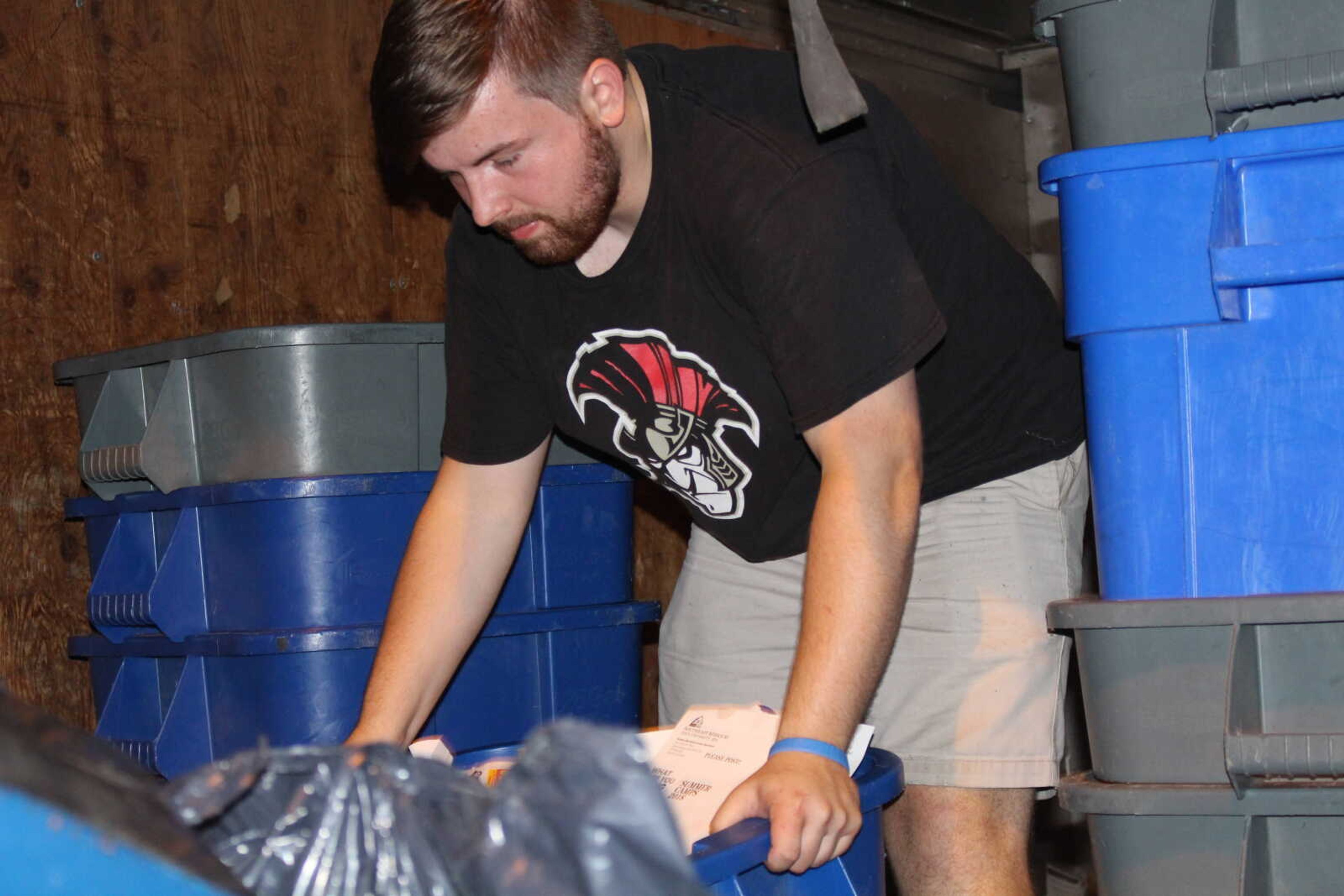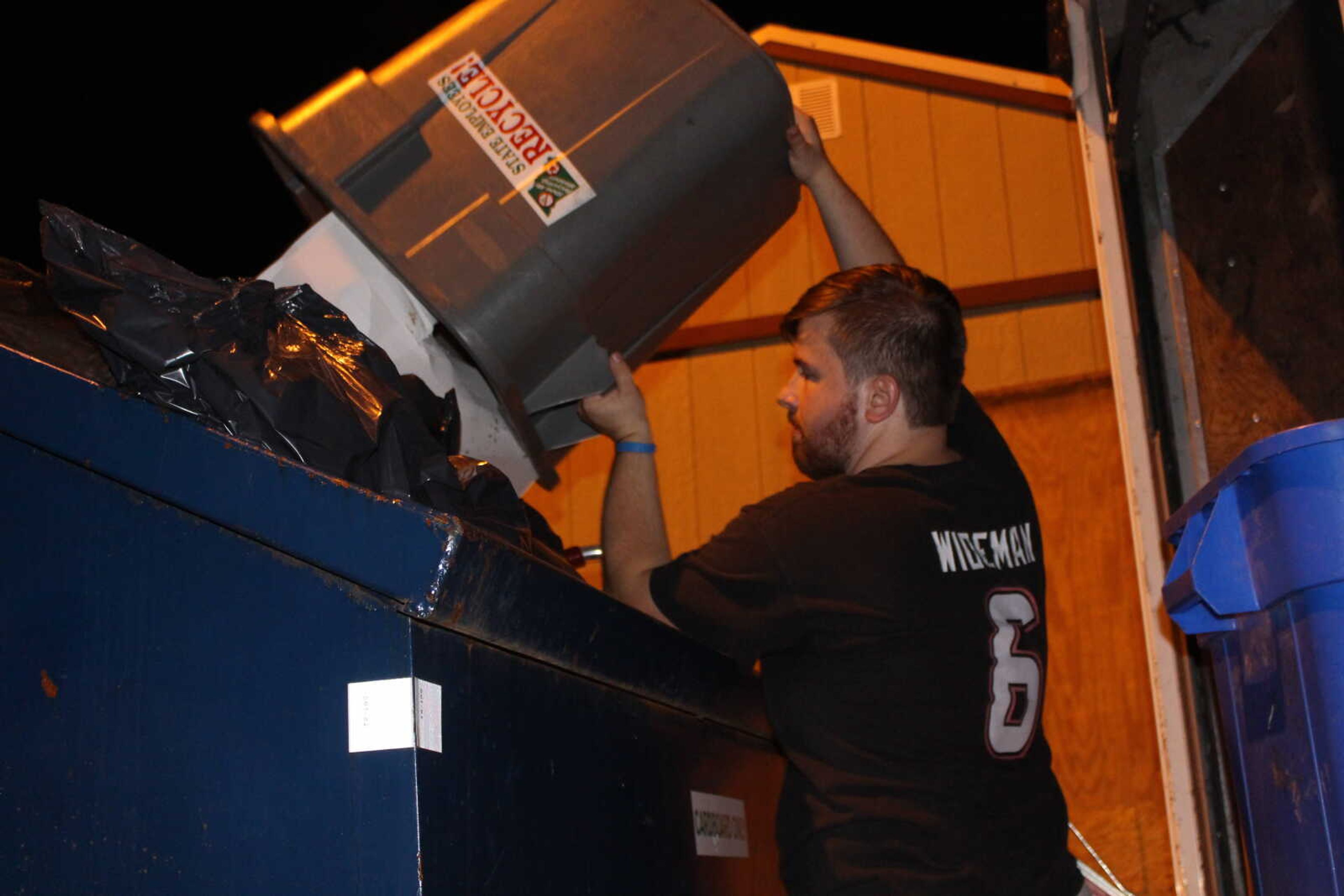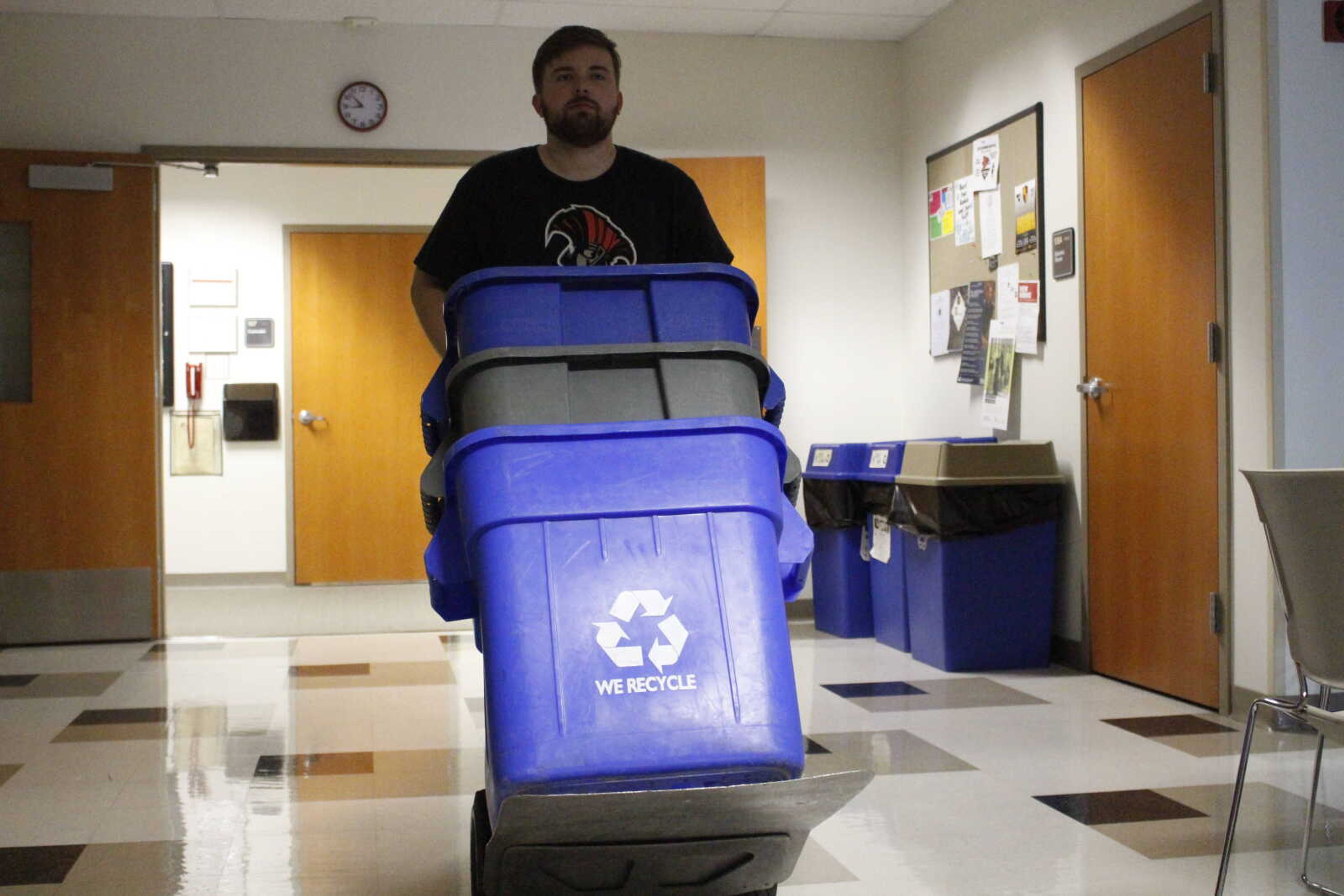Recycling efforts undermined by budget cuts, global factors, consumers
No one said environmental sustainability was easy
Recycling on Southeast’s campus is nothing new, but recent budget cuts, changes in accepted materials and uninformed consumers are detrimental to those efforts, drawing concern from student groups.
When the practice was first adopted on campus, the university was responsible for bailing all recyclable materials after collection; a process that involved a large amount of labor and resources according to Facilities Management supervisor Lonnie Williford. The switch was made to a single-stream system —a more efficient and cost effective system that collects all types of recyclable materials to be separated by another entity further down the line —some six years ago, due to budgetary cutbacks.
In June, the City of Cape Girardeau, which receives all of the campuses’ recyclable materials, announced it would no longer accept plastic shopping bags, garbage bags and newspaper sleeves in its single-stream program “due to dramatic changes in the worldwide use of recyclable materials,” and those items should now be placed in trash carts.

Southeast’s 2017 cuts also resulted in a change in the university’s recycling system. The collection of materials is now charged to student workers instead of the full-time employee who previously performed that duty.
Williford said recycling on campus is split between Facilities Management, who collect from some 50 campus buildings, and residence life, who gather most dormitory materials.
James Grosch, one of two student workers who collect recyclables, said every weeknight he is on the recycling trail between 4 and 11:30 p.m.

“The problem comes when people don't know how to recycle, so I get Starbucks frappes or whatever, all kinds of stuff thrown in there, and I’m told that if that happens, and it’s upside down spilling everywhere, that I have to throw away all of that recyclable material,” Grosch said.
He said much of his time is spent going through the containers, separating the clean materials from dirty ones.
“Students are always on the go. They don't really want to walk to the bathroom or the water fountain and rinse out their cup,” Grosch said. “But it’s about creating a habit, just realizing and being conscious of how to do it properly.”

Environmental Science Association Communication Chair Melanie Grasso said there is a disconnect in communication.
“It is complicated but it’s still an important thing that we should be doing,” Grasso said. “[Facilities Management] doesn’t have time to try to tell everyone that you can rip the top off of the pizza box and all these specific ways to recycle. But if we had a whole group of students who are interested and inspired, we could all be the people who are trying to do more.”
Grasso said the university has made an effort to meet students halfway in sustainable efforts, but beneficial changes such as the biodegradable to-go boxes once offered by campus dining halls have been left by the wayside.
“I think with budget cuts, some of the first things to be cut are sustainability programs and environmental programs,” Grasso said. “Because they're not at the baseline of what students need, and I think that’s why it’s important for people to show the university that this is something they care about because then when there's a lot of student support, they’re less likely to cut something like that.”




